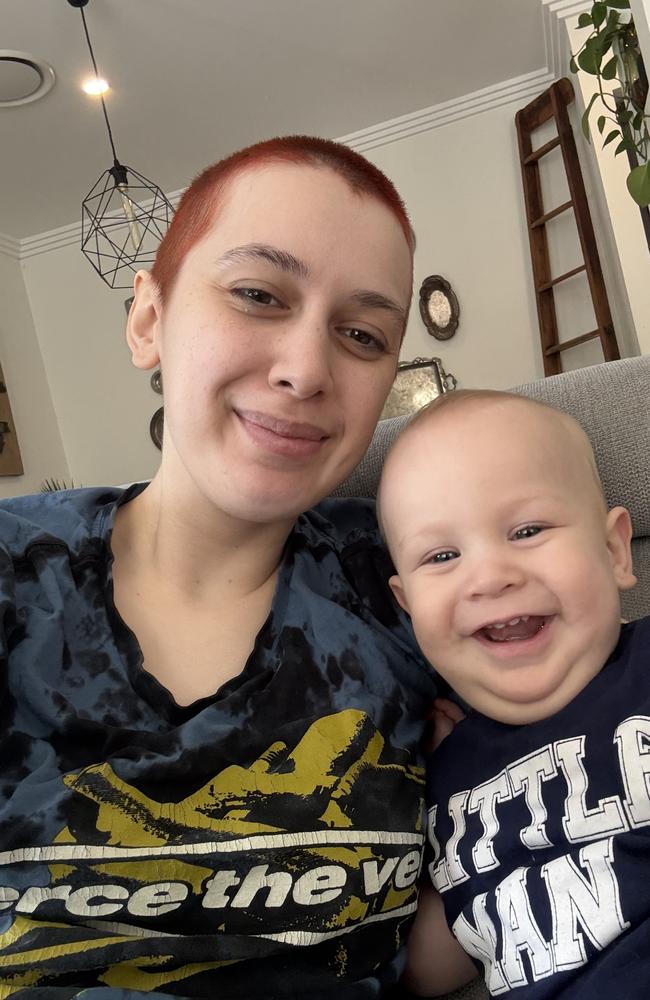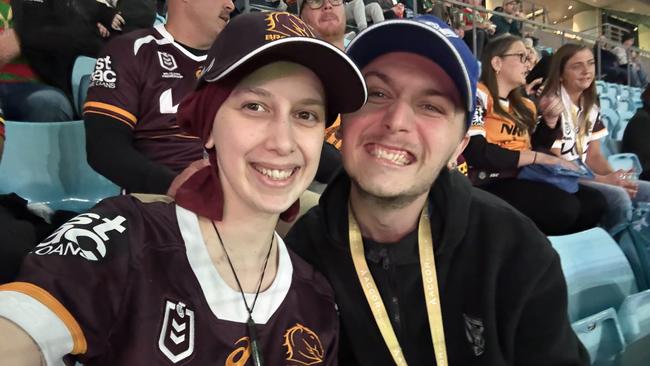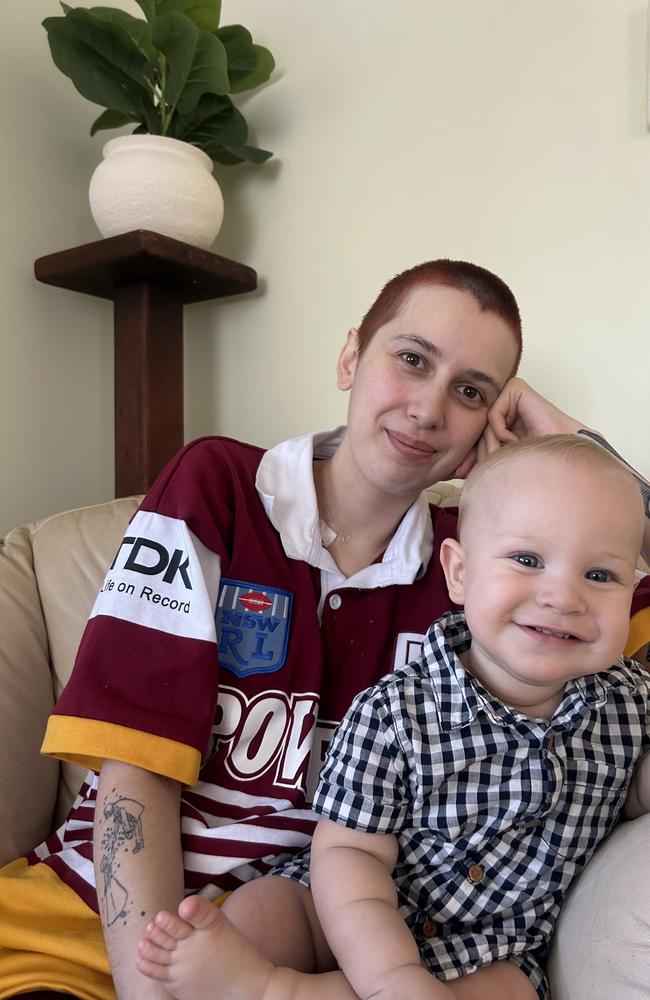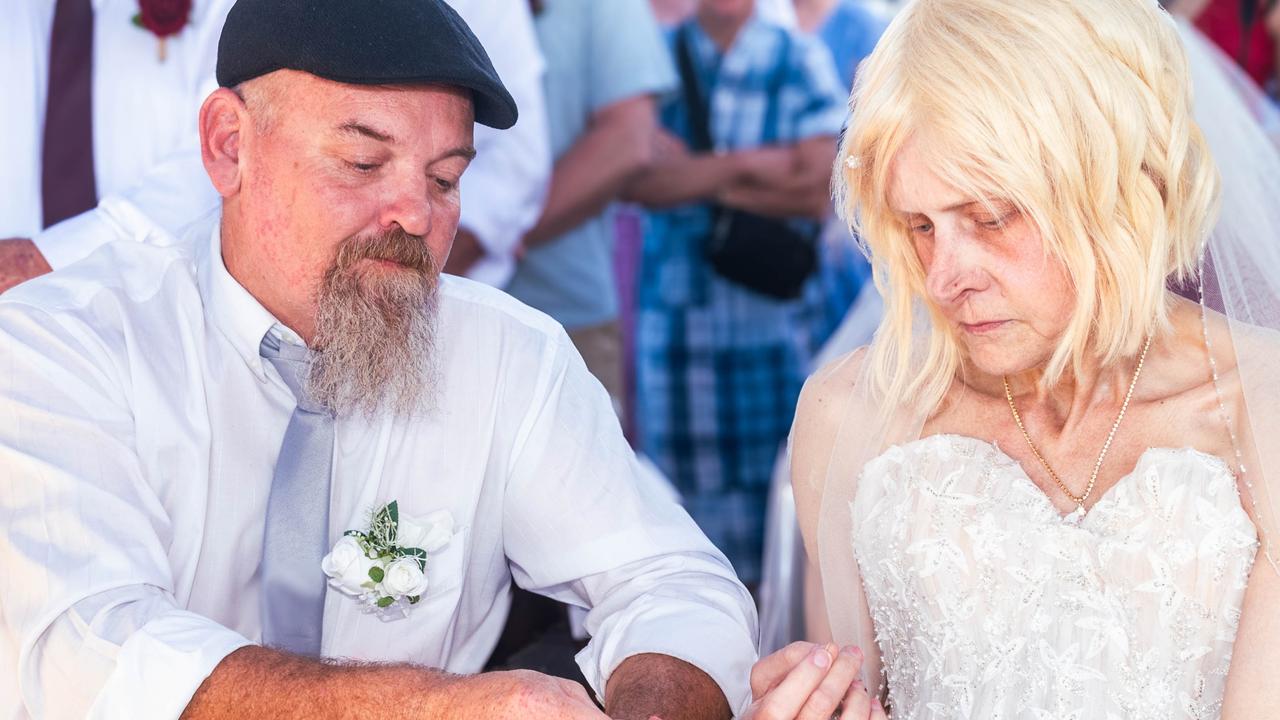Young mum Jayda Regler battling rare terminal cancer seeks alternative treatment in Thailand
At 22, Jayda Regler should be building a life with her young family — instead, she’s fighting to stay alive.

Cancer
Don't miss out on the headlines from Cancer. Followed categories will be added to My News.
At just 22 years old, Jayda Regler’s life should be centred around raising her baby boy and building a future with her husband.
Instead, she’s confronting a devastating and rare terminal cancer diagnosis — Desmoplastic Small Round Cell Tumour (DSRCT) — and preparing to travel overseas in a last-ditch effort to save her life.
Diagnosed in April this year, Ms Regler was initially plagued by unexplained abdominal pains.
“I started having very sudden pains for short periods of time at first and just shrugged it off as being nothing,” the Sydney woman said.
“The pains increased and became non-stop so I finally sought out some medical attention. I did some scans and was told that same day I had cancer.”
The diagnosis was not only a shock but a medical rarity. DSRCT is an aggressive form of soft tissue cancer, typically found in adolescent males. Fewer than 200 cases have ever been reported worldwide.

By the time it was discovered, the cancer had spread to her liver and the lining of her stomach.
And while surgeons removed three tumours, Ms Regler was given a prognosis of one year without surgery, and up to five years if further treatment is successful.
She then began an intensive chemotherapy regimen known as the Ewing sarcoma protocol. But the effects were brutal.
“After starting, the side effects left me bedridden and in a wheelchair,” she said.

“I could not see myself doing this for seven months. It felt like I was becoming weaker and weaker by the second.”
With few options left in Australia — where doctors could only offer more harsh chemotherapy or palliative care — Ms Regler and her family began searching for alternatives. They are now preparing to travel to Verita Life in Thailand, a clinic that offers an integrative approach combining conventional and holistic treatments.
“We are hoping to get to Thailand within the next few weeks,” she said. “The treatment options include both conventional medicine and holistic therapies … Thailand will have a set treatment plan for an eight-week period then a protocol to come home with.”
In the meantime, Ms Regler continues alternative therapies in Australia, including vitamin C infusions and a natural protocol developed by an oncology-focused naturopath.

Throughout her ordeal, she has drawn strength from her family — especially her young son, Mac, who will soon celebrate his first birthday. Her pregnancy was difficult, marked by complications and frequent hospital visits.
“There were no signs at all that anyone could’ve picked up on, that is how fast and aggressive this cancer is,” she said.
Despite her frailty, she is determined to fight. “I have never felt more positive or strong in my life.”
A GoFundMe campaign launched to support her treatment has raised nearly $48,000. With each donation, the young mother edges closer to the care she hopes will buy her precious time — and maybe, a second chance.
According to Cancer Australia, complementary therapies are often used alongside standard medical treatment to help manage symptoms and improve quality of life.
In contrast, alternative therapies are used in place of proven medical treatments. However, there is no scientific evidence that alternative therapies can treat or cure cancer.
WHAT IS DSRCT?
It typically develops in the abdomen or pelvis, but it can also appear in other parts of the body.
The tumour is called “desmoplastic” because it often triggers the growth of dense connective tissue (fibrosis) around the cancer cells.
The “small round cell” part refers to how the cancer cells look under the microscope — they are small, round, and tightly packed.
It’s very rare and often diagnosed at an advanced stage because symptoms can be vague initially.
The exact cause is unknown.
SYMPTOMS OF DSRCT
Symptoms can be quite general and might develop gradually, which makes early diagnosis challenging:
- Abdominal pain or discomfort: Often due to the tumour growing in the abdomen or pelvis.
- Abdominal swelling or a palpable mass: A lump that can sometimes be felt through the skin.
- Unexplained weight loss
- Loss of appetite
- Nausea or vomiting
- Bowel or urinary symptoms: If the tumour presses on organs like the bladder or intestines, it can cause changes in bowel habits or urinary issues.
- Fatigue and general weakness
- Ascites: Accumulation of fluid in the abdomen, leading to swelling and discomfort.
More Coverage
Originally published as Young mum Jayda Regler battling rare terminal cancer seeks alternative treatment in Thailand





